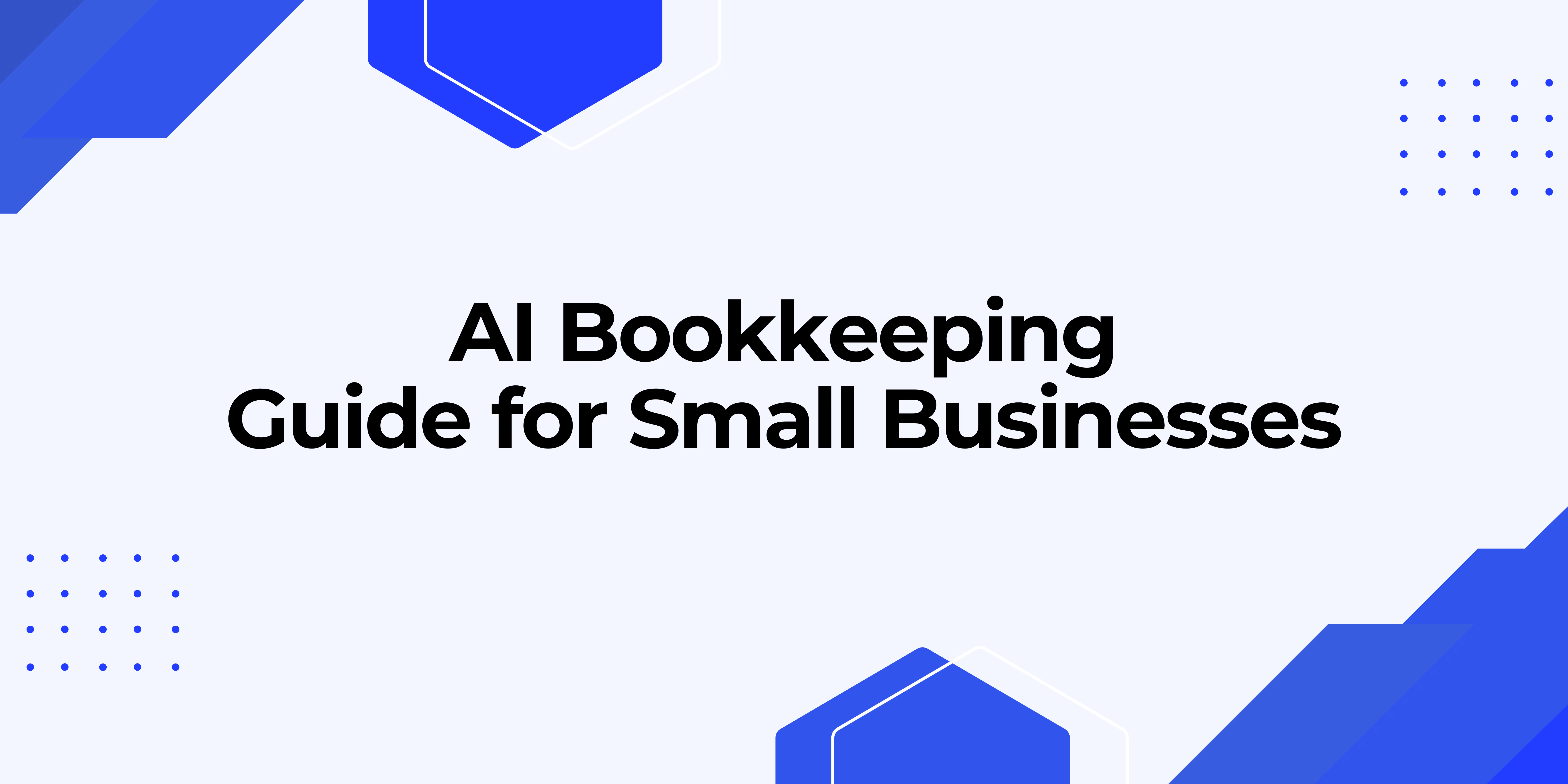
Have you ever stared at stacks of receipts or spreadsheets, wishing there was an easier way to handle your business finances? If so, you're not alone. Bookkeeping has long been a tedious, error-prone process—but AI bookkeeping software is changing that. This article explores exactly what AI bookkeeping is, why it's revolutionizing small business bookkeeping, and how you can start benefiting from it today.
AI bookkeeping involves using artificial intelligence technologies to manage financial records, transactions, and data analysis automatically. Unlike traditional bookkeeping, which requires manual data entry and meticulous checking, AI bookkeeping software leverages machine learning to quickly and accurately handle routine financial tasks.
AI bookkeeping software works by:
Imagine your bookkeeping tasks handled instantly, without manually typing or sorting. That's the power of automated bookkeeping.
Read More: Bookkeeping Basics: What Every Content Creator Needs to Track
Manually keeping books usually leads to human error-desplaced decimals or wrong entries. With AI bookkeeping and a human-in-the-loop approach, such errors are minimized a great deal as all data regarding finances is correctly processed and classified, thus keeping your records error-free.
Each of the hours devoted to book keeping means a year you could have been expanding your business. The AI bookkeeping software is able to undertake the work of hours in a few minutes, and in this way will save you a lot of money by reducing labor costs.
AI bookkeeping platforms have real-time reports and performance metrics. It will always give you an answer of where your business finds itself in a financial perspective and this will enable you to make better decisions in a shorter duration.
One outstanding AI bookkeeping software tailored specifically for small businesses is Otto AI Bookkeeping. Here's why it's becoming increasingly popular:
Otto AI Bookkeeping simplifies data entry, automates transaction categorization, and handles invoice processing effortlessly. Its intuitive interface ensures that even those with minimal bookkeeping experience can use it effectively.
With Otto AI Bookkeeping, you get detailed, real-time financial reports and analytics. This allows you to spot financial trends, make informed decisions, and proactively manage your business’s financial health.
Otto easily integrates with other essential business tools and platforms, making financial management streamlined and hassle-free. It’s ideal for small business owners who prefer an all-in-one solution.

Step 1: Making the right selection of Software
Assess the requirements of your business. Take into account such factors as the simplicity of use, price, and compatibility with your tools. Install various software and tests which will suit.
Step 2: Create your Account
Add the simple details of the business and connect the bank accounts of the business. Then AI bookkeeping software is going to start processing your data and sorting them out automatically.
Step 3: Condition Your AI
First, you will have to verify transaction types. With time your AI program will memorize what you like and what kind of service or product purchases as well as what exactly to classify as a future transaction.
Step 4: Review & Refine Routinely
Although the bookkeeping part of AI assists in most chores using automatic technology, you should always take a regular check of your financial statements to verify their accuracy and bring you the business trend.
Read More: Why Having a Bookkeeping System Makes You a Better Creative
Let's look at an example:
Sarah is the owner of a small graphic design agency lady who used to spend all her weekends trying to deal with the business finances. Her work volume lowered greatly once she moved to AI bookkeeping-software. The software was able to automate the process of invoice, tracking expenses, and financial forecasting. Sarah now has time to concentrate more on the client relations and expanding her business.
"AI bookkeeping didn't just save me hours—it allowed me to clearly see financial opportunities I was previously missing," Sarah shares.
Artificial intelligence bookkeeping is still under fast development. Future innovations such as voice-command bookkeeping, predictive analytics, and more seamless integration with the rest of business management tools expect to bring even more efficiencies and insights to the business of small enterprises.
Embracing AI bookkeeping now positions your business to take advantage of these emerging innovations quickly.
AI bookkeeping isn't just a futuristic concept; it's here now, transforming the way small businesses handle their finances. By adopting AI bookkeeping, you gain accuracy, efficiency, and insightful real-time data that empowers better decision-making.